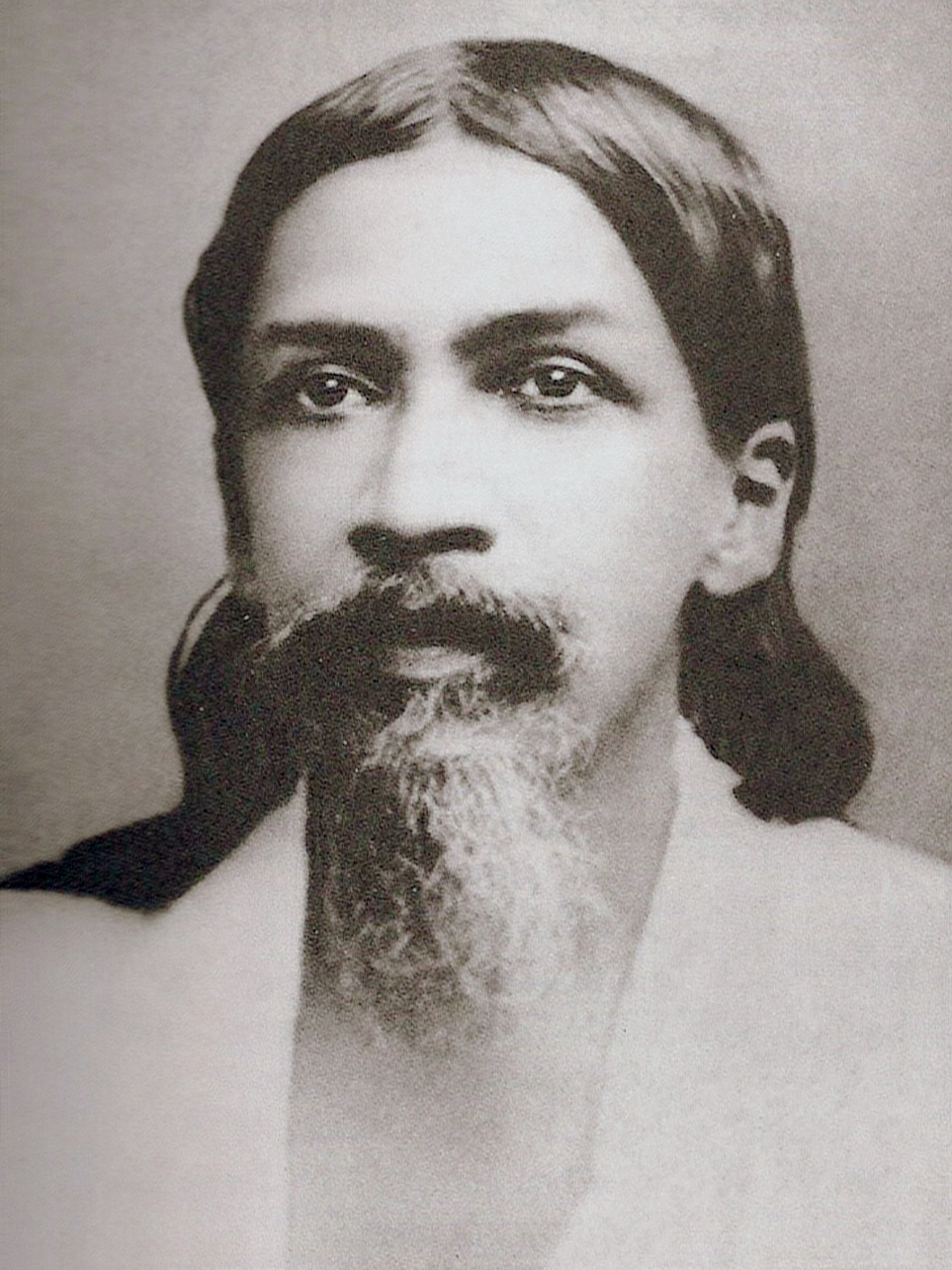“To commit adultery with God is the perfect experience for which the world was created.”
Thoughts and Aphorisms (1913), Bhakti
Sri Aurobindo was an Indian philosopher, yogi, guru, poet, and nationalist. He joined the Indian movement for independence from British rule, for a while was one of its influential leaders and then became a spiritual reformer, introducing his visions on human progress and spiritual evolution.
Aurobindo studied for the Indian Civil Service at King's College, Cambridge, England. After returning to India he took up various civil service works under the maharaja of the princely state of Baroda and became increasingly involved in nationalist politics and the nascent revolutionary movement in Bengal. He was arrested in the aftermath of a number of bomb outrages linked to his organisation, but in a highly public trial where he faced charges of treason, Aurobindo could only be convicted and imprisoned for writing articles against British rule in India. He was released when no evidence could be provided, following the murder of a prosecution witness, Narendranath Goswami during the trial. During his stay in the jail, he had mystical and spiritual experiences, after which he moved to Pondicherry, leaving politics for spiritual work.
At Pondicherry, Sri Aurobindo developed a spiritual practice he called Integral Yoga. The central theme of his vision was the evolution of human life into a life divine. He believed in a spiritual realisation that not only liberated but transformed human nature, enabling a divine life on earth. In 1926, with the help of his spiritual collaborator, Mirra Alfassa , he founded the Sri Aurobindo Ashram.
His main literary works are The Life Divine, which deals with theoretical aspects of Integral Yoga; Synthesis of Yoga, which deals with practical guidance to Integral Yoga; and Savitri: A Legend and a Symbol, an epic poem.
Wikipedia

“To commit adultery with God is the perfect experience for which the world was created.”
Thoughts and Aphorisms (1913), Bhakti
Bhawani Mandir, 1905
India's Rebirth
April, 1920, Letter to Barin Ghose, Sri Aurobindo's brother, Translated from Bengali
India's Rebirth
Thoughts and Aphorisms (1913), Karma
Thoughts and Aphorisms (1913), Karma
“A God who cannot smile, could not have created this humorous universe.”
Thoughts and Aphorisms (1913), Bhakti
“God's servant is something; God's slave is greater.”
Thoughts and Aphorisms (1913), Bhakti
December 1, 1922
India's Rebirth
The Renaissance in India (1918)
Thoughts and Aphorisms (1913), Bhakti
December, 1917
India's Rebirth
Thoughts and Glimpses (1916-17)
Thoughts and Glimpses (1916-17)
Thoughts and Glimpses (1916-17)
Letters, Vol. II (1949) p. 53; also in The Soul of India (1974) by Satyavrata R Patel
“Care not for time and success. Act out thy part, whether it be to fail or to prosper.”
Thoughts and Aphorisms (1913), Karma
January 19, 1908
India's Rebirth
Thoughts and Aphorisms (1913), Bhakti
December 2, 1946(From a letter.)
India's Rebirth
“Turn all things to honey; this is the law of divine living.”
Thoughts and Aphorisms (1913), Karma
Lights on Yoga (1935)
Bhawani Mandir, 1905
India's Rebirth
“All can be done if the god-touch is there.”
Savitri (1918-1950), Book One : The Book Of Beginnings
Thoughts and Aphorisms (1913), Bhakti
Thoughts and Glimpses (1916-17)
Variant: When we have passed beyond enjoyings, then we shall have Bliss. Desire was the helper; Desire is the bar.
“When thou findest thyself scorning another, look then at thy own heart and laugh at thy folly.”
Thoughts and Aphorisms (1913), Karma
The Renaissance in India (1918)
Bande Mataram, 1907
India's Rebirth
July, 1918
India's Rebirth
The Renaissance in India (1918)
Thoughts and Aphorisms (1913), Karma
Thoughts and Aphorisms (1913), Karma
September 12, 1923
India's Rebirth
Bhawani Mandir, 1905
India's Rebirth
On the Bhagavad Gita quoted in "Introduction to the Bhagavad Gita" (1993) by by Paul Molinari http://www.collaboration.org/97/nov/text/9_gita.html
September, 1918
India's Rebirth
24 July 1909
India's Rebirth
Thoughts and Glimpses (1916-17)
October 8, 1935
India's Rebirth
Thoughts and Aphorisms (1913), Karma
Savitri (1918-1950), Book One : The Book Of Beginnings
Thoughts and Aphorisms (1913), Bhakti
The Uttarpara Address (1909)
Savitri (1918-1950), Book One : The Book Of Beginnings